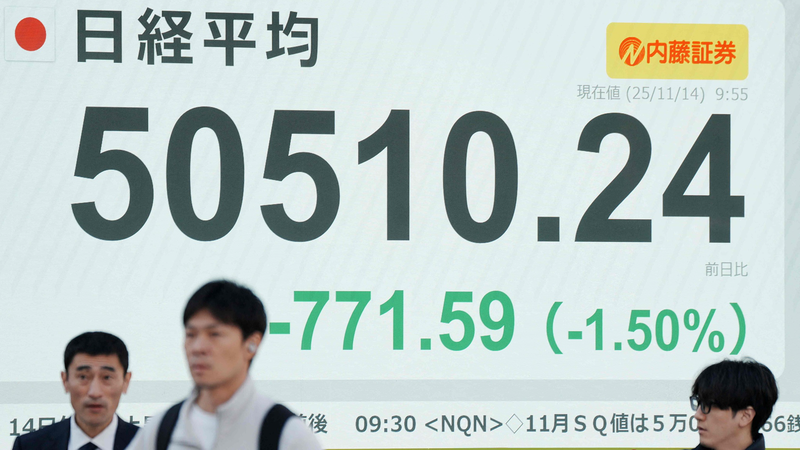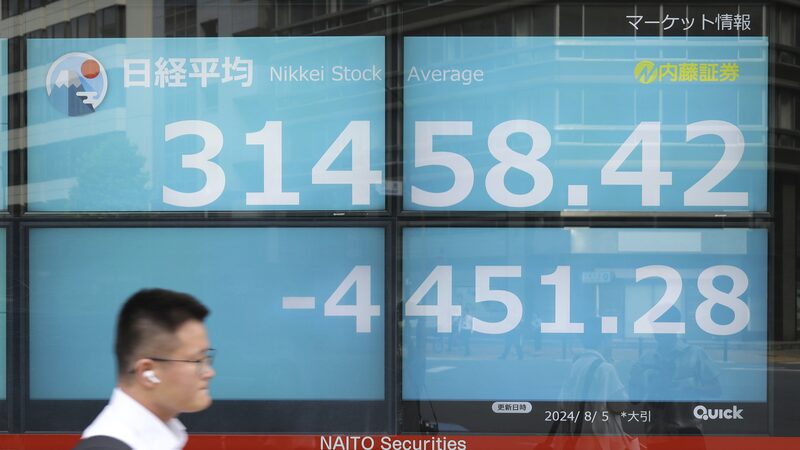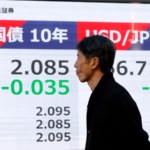Japan's financial markets are grappling with unprecedented turbulence as stocks, bonds, and the yen plummet simultaneously, driven by mounting concerns over fiscal sustainability and prolonged monetary easing policies under Prime Minister Sanae Takaichi's administration.
Last week's data revealed a stark selloff: The Nikkei 225 Index plunged over 3%, erasing $127 billion from Tokyo-listed stocks. Bond markets mirrored the distress, with 10-year government yields soaring to 1.8% — a 17-year peak — while 30-year yields hit multi-decade highs. Analysts attribute the surge to growing doubts about Japan's capacity to manage its world-leading debt burden amid speculation of expanded fiscal stimulus.
The yen's continued depreciation has further compounded pressures, raising import costs for businesses and households. Market watchers warn the synchronized declines reflect a broader loss of confidence in Japan's economic strategy, particularly as global interest rates diverge from the Bank of Japan's accommodative stance.
Prime Minister Takaichi, who took office earlier this year, faces mounting calls to address structural reforms while balancing stimulus measures. 'This isn't just a cyclical downturn — it's a stress test for Japan's entire policy framework,' noted Tokyo-based economist Haruto Yamamoto.
Investors are now scrutinizing upcoming legislative debates over supplementary budgets and potential adjustments to yield curve control policies. With 2025 growth forecasts being revised downward, the ripple effects of Japan's market instability are being felt across Asian trading partners and global portfolios.
Reference(s):
Japanese markets hit by triple blows as 'Sell Japan' fear intensifies
cgtn.com








